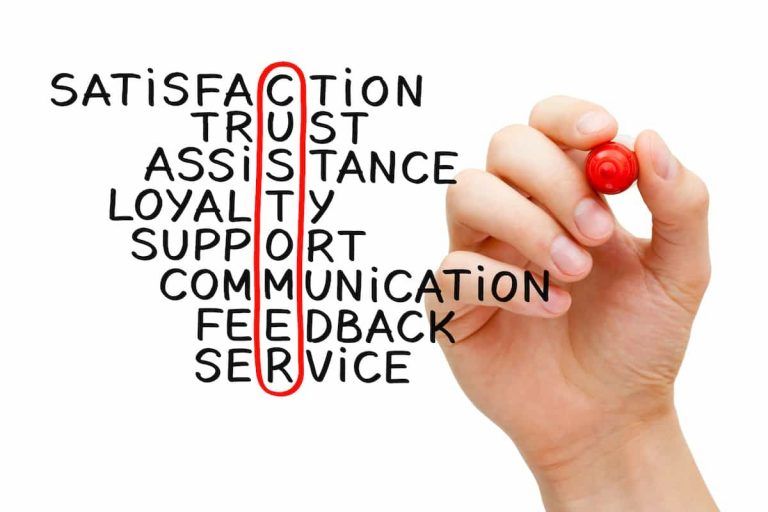
In the realm of business-to-business (B2B) interactions, establishing and maintaining strong customer relationships is the bedrock of success. Unlike business-to-consumer (B2C) transactions, B2B engagements often involve complex, long-term partnerships that necessitate a deeper level of understanding and collaboration. Building and nurturing strong customer relationships not only bolsters sales in the short term but paves the way for sustainable success over the long haul. In this blog post, we’ll delve into effective strategies for cultivating enduring customer relationships that are crucial for B2B companies.
Understanding the B2B Landscape
B2B transactions are fundamentally distinct from B2C transactions, primarily in terms of scale, complexity, and decision-making processes. B2B interactions often involve intricate negotiation processes, multiple stakeholders, and long-term contracts. The relationships formed in B2B settings tend to be enduring, with the potential for recurring business opportunities.
Key Elements of Strong Customer Relationships
1. Transparency and Open Communication:
Clear and open communication is the cornerstone of any successful business relationship. B2B customers appreciate transparency regarding products, services, pricing, and terms. Keeping clients informed at every stage of a project or transaction builds trust and demonstrates integrity.
Establishing a consistent communication channel, whether through regular status updates, newsletters, or dedicated account managers, fosters an environment where clients feel comfortable expressing their needs and concerns. Actively listening to your clients and addressing their issues promptly and effectively can significantly strengthen the bond between your company and its customers.
2. Customer-Centric Approach:
Understanding your customer’s business needs, challenges, and goals is paramount. Tailoring your products or services to meet these specific needs showcases a customer-centric approach. By demonstrating that you have their best interests at heart, you establish a foundation for a long-term partnership.
Engage with your customers to understand their pain points and work collaboratively to devise solutions that add value to their operations. Strive to exceed their expectations consistently, reinforcing their belief that your company is a reliable partner invested in their success.
3. Reliability and Consistency:
Consistency breeds reliability, a crucial factor in any B2B relationship. Delivering on promises and commitments, meeting deadlines, and providing high-quality products or services establish your company as a dependable partner.
Reliability is about being there when your customers need you, anticipating their needs, and proactively addressing potential issues. Establishing a reputation for consistent excellence lays the foundation for a strong, lasting customer relationship.
4. Personalization and Customization:
Every customer is unique, and understanding and appreciating this uniqueness is vital. Tailor your interactions, products, and services to suit each customer’s specific requirements. Personalization demonstrates that you value your customers as individuals and not just as business entities.
Collect and utilize data to understand your customer’s preferences, history, and purchasing behavior. Leverage this data to create personalized experiences and offerings that resonate with them, making them more likely to remain loyal and engage in repeat business.
5. Adaptability and Flexibility:
In the dynamic world of B2B, adaptability is key. Markets change, businesses evolve, and so do customer needs. It’s vital to be flexible and responsive to these changes. This could mean adjusting your offerings, terms, or processes to better align with your customer’s evolving requirements.
An adaptable approach demonstrates your commitment to your customer’s success and willingness to evolve in tandem with their changing needs, cementing your position as a valuable and long-term partner.
6. Regular Feedback and Improvement:
Engage your customers for feedback on your products, services, and overall relationship. Constructive criticism can provide invaluable insights for enhancing your offerings and processes.
Show your customers that their feedback is valued by implementing changes based on their suggestions. This not only improves your products and services but also strengthens your relationship by demonstrating your dedication to meeting their expectations.
Implementing Customer Relationship Strategies
Effectively implementing these strategies requires a concerted effort from your entire organization. Here’s how to put these strategies into action and drive successful customer relationship building within your B2B company:
1. Train Your Team:
Equip your sales and account management teams with the necessary skills to understand, engage, and communicate effectively with B2B clients. Providing training on negotiation techniques, active listening, and relationship management is crucial.
2. Leverage Technology:
Invest in a robust Customer Relationship Management (CRM) system that enables efficient tracking of customer interactions, preferences, and feedback. Utilize data analytics to gain actionable insights into customer behavior and preferences.
3. Develop Customer-Centric Policies:
Incorporate customer-centric policies that emphasize the importance of customer satisfaction, feedback, and continuous improvement within your organizational culture.
4. Establish Dedicated Relationship Managers:
Assign dedicated relationship managers to key accounts. These managers will act as a point of contact for customers, ensuring their needs are understood and met effectively.
5. Conduct Regular Customer Surveys:
Periodically conduct surveys to gather feedback on customer satisfaction, areas for improvement, and new needs that may have emerged.
6. Organize Customer Appreciation Events:
Host events or webinars specifically for your customers to demonstrate your gratitude for their business and provide opportunities for networking and learning.
Conclusion
Building strong customer relationships in the B2B landscape is a strategic imperative. Cultivating enduring relationships based on transparency, customer-centricity, reliability, personalization, adaptability, and continuous improvement is essential for long-term sales success. By prioritizing these relationships and implementing the right strategies, B2B companies can solidify their position as trusted partners in their customers’ growth and success journey.
Remember, in the B2B world, a satisfied customer today can be a loyal customer for a lifetime, driving sustained growth and prosperity for your business.

